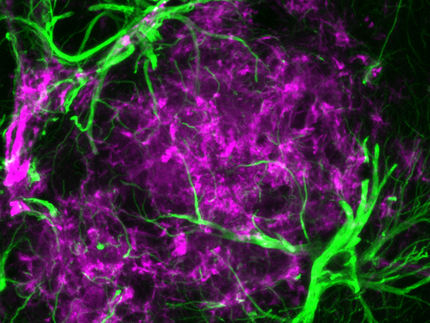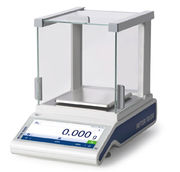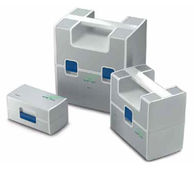Michael J. Fox Foundation Awards $2 Million Grant from Merck Serono to Research Projects on Parkinson's Disease
Five Research Teams Selected to Receive Funding for Preclinical and
The Michael J. Fox Foundation for Parkinson's Research (MJFF) awarded a total of$2 million to five research teams to speed development of effective therapies for the under-addressed cognitive and mood-related symptoms of Parkinson's disease (PD). The award was made possible by leadership funding from Merck Serono, a division of Merck KGaA, Darmstadt,Germany.
The research grants will support preclinical and clinical projects under MJFF's Cognitive Deficits and Mood Disorders in Parkinson's Disease initiative. Patients often report these symptoms, which range from problems with executive function (the ability to formulate, sequence, and execute plans) to dementia; depression, apathy and anxiety; and behavioral issues including problems with impulse control, to be among the most difficult aspects of living with PD.
"Clinicians and patients alike report how disabling the cognitive and mood effects of PD can be, yet these symptoms are systematically under-researched and are poorly understood," said Katie Hood, CEO of The Michael J. Fox Foundation. "We are thrilled to have found a like-minded partner in Merck Serono so that we can push this work forward."
Elmar Schnee, President of Merck Serono, said: "Merck Serono recognizes the critical need for new therapies to alleviate PD-related cognitive dysfunction. We are pleased to stand side by side with The Michael J. Fox Foundation in prioritizing and supporting research with potential to help speed development of effective treatments that will allow every patient to live a fuller and more satisfying life."
The development of treatments for cognitive and mood symptoms of PD has been hindered by a lack of preclinical models to explain these features of the disease; a lack of basic knowledge of the mechanisms that underlie these symptoms; inadequate understanding of the clinical features of these symptoms in PD; and a need for relevant clinical scales to improve diagnosis and for use as tools in clinical intervention trials. Funded teams will pursue approaches within each of these areas to improve the field's ability to model and test interventions for these symptoms.
Eugenia Gurevich, PhD, of Vanderbilt University (USA) will test the hypothesis that simultaneous reduction of dopamine and the neurotransmitter acetylcholine, which plays a major role in memory formation, leads to symptoms of PD-related dementia. To test this hypothesis, her group will administer a Parkinsonian toxin to preclinical models with lowered levels of acetylcholine, then measure their performance on a battery of cognitive tests. If the preclinical models show cognitive impairment, this project could lead to the identification of a novel preclinical model for testing therapeutic strategies for the cognitive symptoms of PD.
John Growdon, MD, of Harvard University (USA) will build on preliminary data implicating the protein beta amyloid - better known for its role in Alzheimer's disease - in PD-related cognitive changes. Dr. Growdon will enroll 40 PD patients, half of whom are experiencing cognitive impairment. Working with Pittsburgh compound B (PIB), an imaging agent developed by Alzheimer's researchers to visualize amyloid protein accumulation in the living brain, Dr. Growdon's team will scan the PD patients' brains. The researchers will then follow this cohort of patients over a two-year period to determine the extent of cognitive changes undergone by each and correlate this data to the scans. The work could lead to the initial validation of amyloid as a therapeutic target of interest and potential biomarker for PD-related cognitive decline.
Ben Schmand, PhD, of Academic Medical Center (The Netherlands) has been funded to extend an observational clinical study begun three years ago. His study has thus far collected a wealth of information on parkinsonism, neuropsychological status and quality of life. Dr. Schmand, who began his study with 120 people with PD and 70 controls, will now follow the remaining cohort of 90 patients and 60 controls with the objective of identifying early predictors of cognitive decline. Because preliminary data suggest that 20 percent of enrolled PD patients exhibited early cognitive impairment not observed in controls, extending the study should help detect further changes that will increase understanding of the phenomenology of cognitive changes in PD.
Connie Marras, MD, PhD, of the University of Toronto (Canada) will work to validate a well-known test for cognitive impairment, the Montreal Cognitive Assessment (MoCA), for diagnosing PD-related cognitive changes. Currently available tests for detecting cognitive impairment are either insensitive to the specific changes that occur in PD, test only some of the brain functions that can be impaired in PD-related dementia, and/or can be highly time-consuming. The MoCA, which takes less than 10 minutes to administer, could offer a wider window for detecting changes in PD patients. Dr. Marras will enroll 140 PD patients to take the MoCA questionnaire, whom she will then follow over time to determine the ability of MoCA to detect cognitive impairment in PD. Validation of the MoCA will provide a critical research tool needed to improve diagnosis of PD cognitive changes as well as for testing of novel therapeutics in future clinical trials.
Celeste Napier, PhD, of Rush University (USA) will work to shed light on the pathological gambling and other problems with impulse control that may be linked to dopamine replacement therapy in PD. While dopamine is involved with both the motor and reward systems, it is unclear why some PD patients exhibit reward-seeking behavior, particularly when taking dopaminergic drugs. Dr. Napier will combine preclinical models of PD and addictive behavior with the goal of developing a preclinical model to better characterize the putative link between dopamine replacement and impulse control problems.
Awards duration ranges from one to three years. As with all MJFF grants, full funding is dependent on fulfillment of predetermined, specific milestones and on researchers' agreement to make the results of their work available to the PD research community. The selection of program awardees was made exclusively by the Foundation under its standard peer-review process.






















































